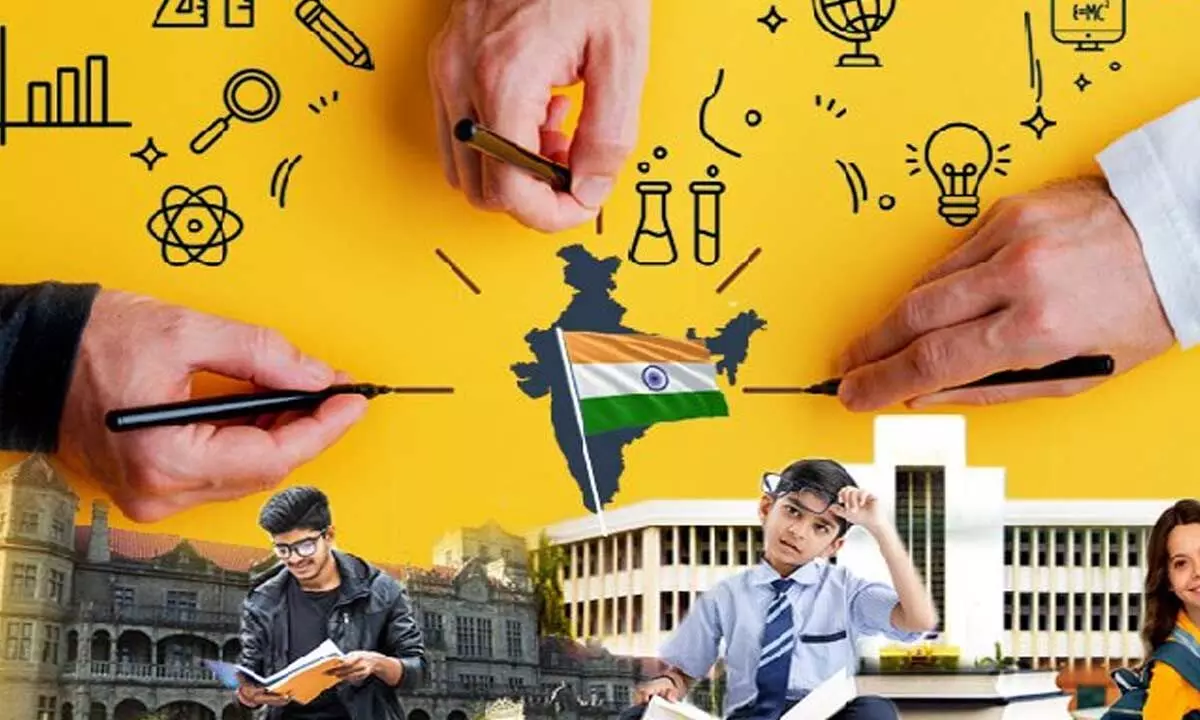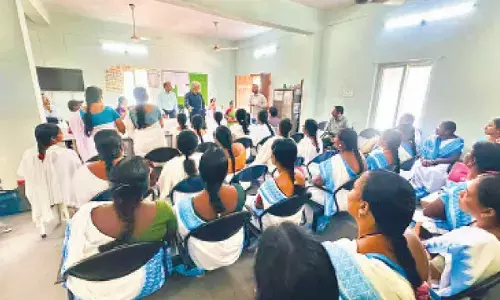Innovation in India: Embracing structural changes to schools

Representational image
When we talk about innovation, unfortunately education is among the last sectors that actually makes changes and moves away from long-held practices to more innovative, research proven practices that are shown to have a better impact on student learning than traditional methods.
When we talk about innovation, unfortunately education is among the last sectors that actually makes changes and moves away from long-held practices to more innovative, research proven practices that are shown to have a better impact on student learning than traditional methods. John Dewey, an educator and educational philosopher from the early 1900s, shared many then progressive approaches to teaching and learning that have since shown to be more effective, than traditional rote memorization and industrial school models still used widely today.
India implemented a New Educational Policy (NEP) almost two years ago with little changes seen in public and private schools. While Covid-19 has surely delayed implementation, the high level of bureaucracy is likely more the culprit for why things have not changed in India- and much of the rest of the World's public and private sectors. It's simply easier to do things as they have been done- rest on traditions than to retrain millions of teachers and school leaders to implement more progressive approaches to teaching and learning.
One huge change in the NEP is the change from the "10+2" (Grades 1-10 + grades 11-12) to the 5-3-3-4 model (PreK-Grade 2; Grades 3-5; Grades 6-8; and Grades 9-12). Reallocating teacher and leader training towards this model will have an amazing impact on how and what we teach and when in India. The biggest impact this will have is removing the need for the ever-present Grade 10 Board exams. Why is there a grade 10 board exam when high school finishes in grade 12? One answer is forty-odd years ago the four year high school program was changed to the 10+2 model with students opting to either continue two more years of high school, or stop schooling; hence the need for a grade 10 board.
The Grade 10 Board exams are so powerfully fixed in the Indian educational mindset that an engineer with a masters degree and 10 years of practical experience still needs to list this in her or his resume when applying for a job 15 years after the grade 10 boards. This seems odd to place so much emphasis on an exam that really only measures a small amount of a person's learning and education and professional trajectory.
The amount of time spent teaching to the grade 10 boards, studying for the grade 10 boards, and taking the grade 10 boards, not to mention the anxiety and tension that they create, could be better spent actually teaching and learning about subjects, developing conceptual understanding, competencies, and character to develop the fortitude necessary to participate in an ever-changing labor market!
So the most innovative thing that can be done in India to really alter and change the approach to teaching and learning is to do away with Grade 10 Board exams and retrain teachers and school leaders, along with parents, as to what is really needed for the future, what is worth learning and how we should learn. If the weight of the Grade 10 boards continue, no other educational innovation will be possible as they will all be window dressing until the time comes to prep for exams, often a year in advance. This is a serious loss of educational time for all of India's students to learn what is truly needed in this evolving world. We can no longer thing about what just works in India for the Indian labor market- but within the greater context of India's growing share in the world market.
(The author is the Head of School, Canadian International
School, Bangalore)








